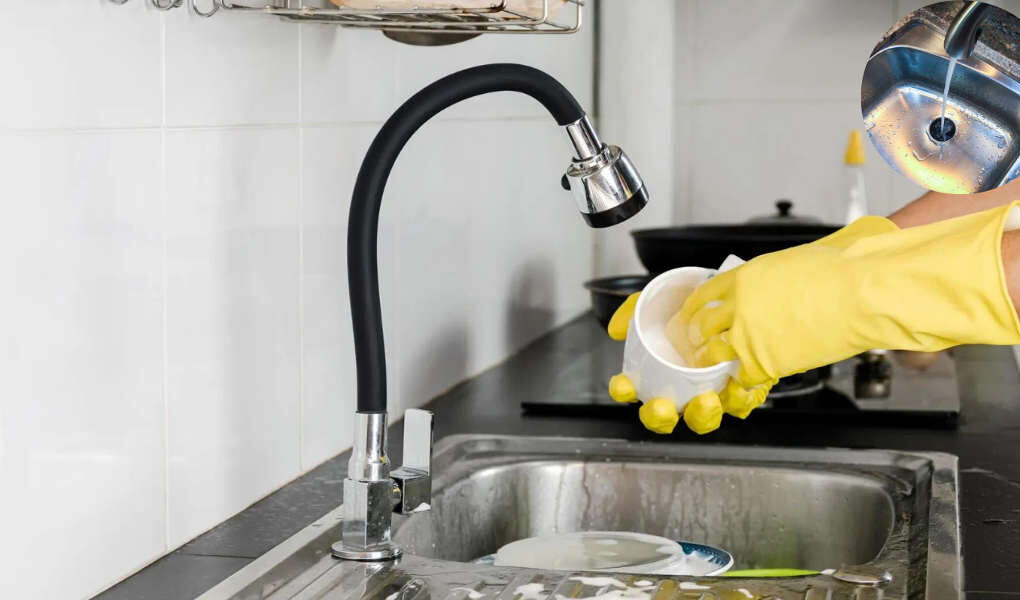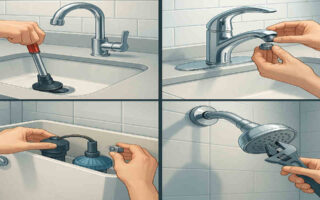Coffee is a beloved beverage worldwide, offering comfort, energy, and a moment of peace in a busy day. But while people enjoy their morning brew, what happens to the leftover coffee grounds often goes unnoticed. Many individuals rinse their coffee grounds down the sink, assuming it’s harmless. However, this seemingly innocent habit could lead to serious plumbing issues.
So, are coffee grounds bad for home plumbing? The short answer is yes. Flushing coffee grounds down the drain can cause clogs, damage pipes, and lead to costly repairs. Understanding why this happens and how to prevent it is crucial for maintaining a functional and hassle-free plumbing system.
Understanding Coffee Grounds and Their Properties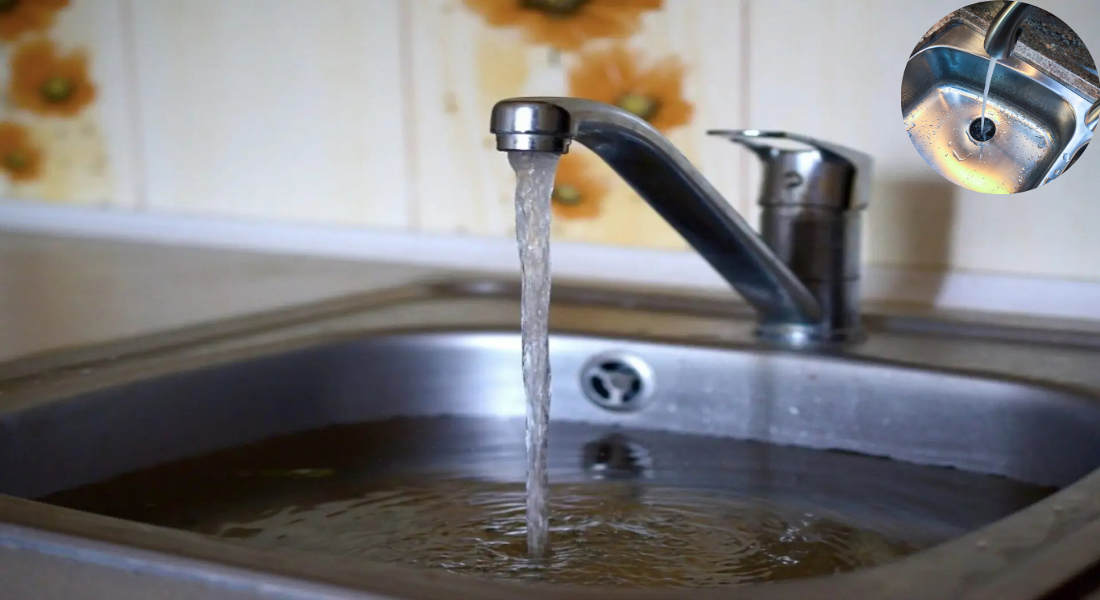
Coffee grounds might seem small and harmless, but their unique properties make them problematic for plumbing systems. To understand why, let’s delve into their composition and how they behave in water.
What Are Coffee Grounds Made Of?
Coffee grounds are the remnants of ground coffee beans after brewing. They are organic but dense, consisting of tiny particles that clump together easily. Unlike sugar or salt, coffee grounds do not dissolve in water. Instead, they retain their texture and shape, even when soaked.
Why Don’t Coffee Grounds Break Down in Water?
Unlike biodegradable materials that decompose quickly, coffee grounds are resistant to breaking down in water. Their fibrous texture and oil-containing particles make them hydrophobic, meaning they repel water rather than absorbing it. This characteristic causes the grounds to stick together and form clumps, which can easily get stuck in pipes.
How Coffee Grounds Behave in Drains
When coffee grounds are rinsed down the sink, they don’t simply flow through the pipes. Instead, they settle and accumulate in curved sections of the plumbing, such as U-bends or joints. Over time, these clumps grow larger as they trap other debris, eventually leading to blockages.
How Coffee Grounds Affect Home Plumbing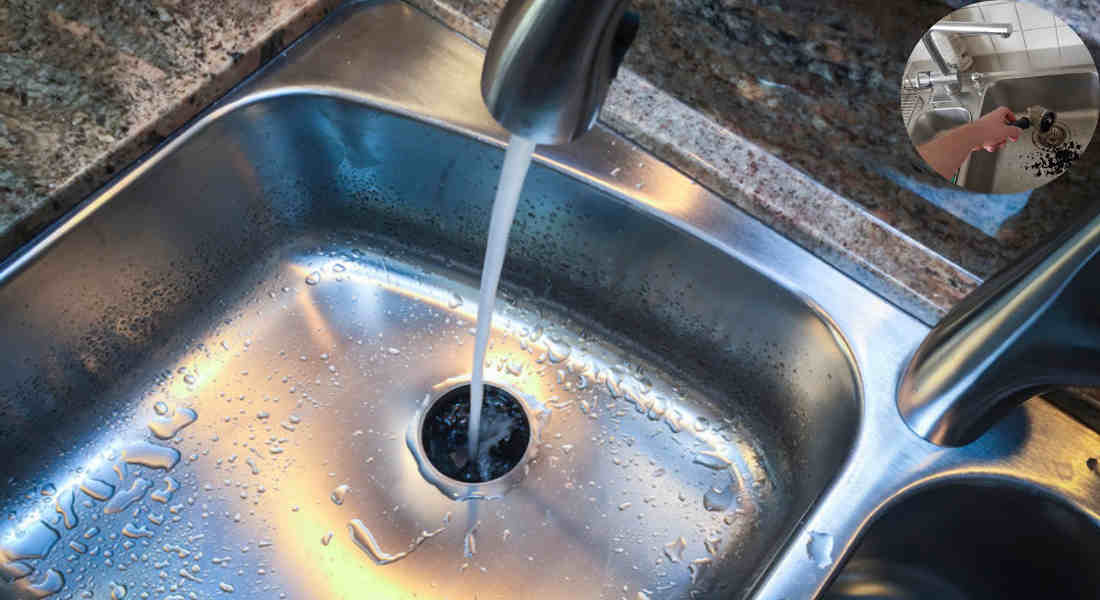
The accumulation of coffee grounds in pipes can wreak havoc on your plumbing system. Let’s break down the specific ways coffee grounds can cause problems and why this habit is best avoided.
You may also read (static test in your home plumbing).
Coffee Grounds Accumulate and Harden in Pipes
Once coffee grounds enter the plumbing, they don’t just wash away. Their sticky nature causes them to adhere to the inner walls of pipes. Over time, more grounds and other debris, such as grease and food particles, build up around these clumps. This creates hardened blockages that are difficult to remove without professional tools.
Interaction with Grease and Oils
Grease and oil are two of the most common substances that combine with coffee grounds to form stubborn clogs. When you pour grease or oil down the drain (another harmful habit), these substances cool and solidify. Coffee grounds stick to this layer of grease, forming a thick, cement-like substance that can completely obstruct the pipe.
Common Plumbing Issues Caused by Coffee Grounds
Here are some of the most frequent problems homeowners face due to coffee grounds in their plumbing:
- Slow Drains: Coffee grounds can partially block pipes, causing water to drain more slowly.
- Pipe Clogs: Over time, clogs become severe, leading to complete pipe blockages that require professional intervention.
- Garbage Disposal Damage: Coffee grounds are abrasive and can wear down the blades and motor of garbage disposals, reducing their lifespan.
Real-Life Examples of Plumbing Damage
Many plumbers report that coffee grounds are one of the most common culprits behind clogged kitchen sinks. For instance, one plumber from Atomic Plumbing shared how coffee clogs often require specialized tools like augers to remove. These blockages are particularly challenging because they tend to form dense clumps that regular drain cleaners can’t dissolve.
Debunking Myths About Coffee Grounds and Plumbing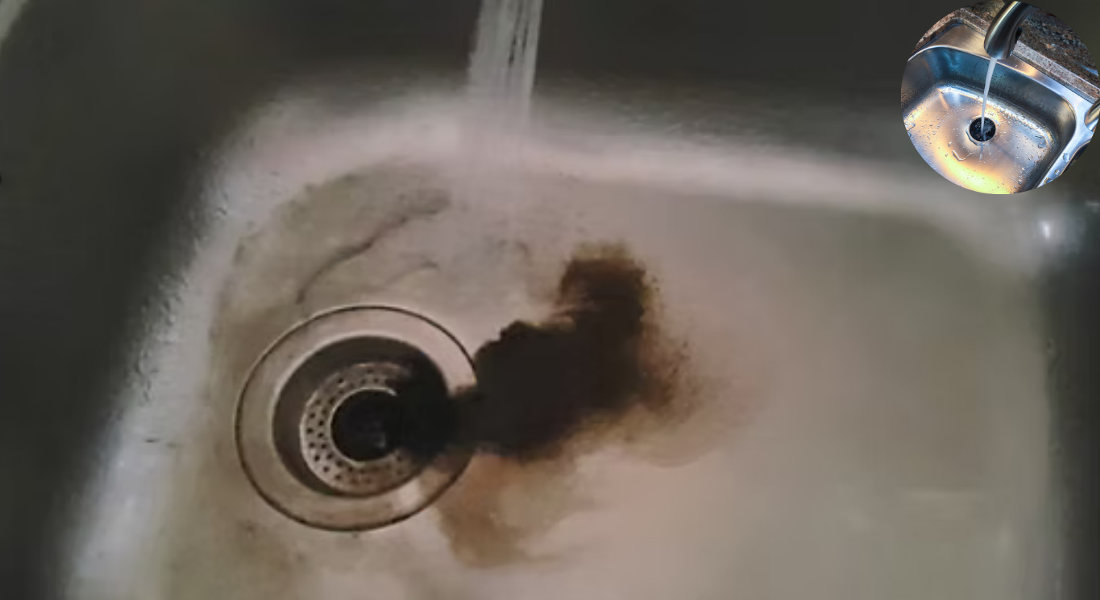
There’s a lot of misinformation about coffee grounds and their impact on plumbing. Let’s clear up some of the most common myths.
Myth 1: Coffee Grounds Are a Natural Cleaner for Pipes
Some believe that coffee grounds can scour the inside of pipes, keeping them clean. This is a misconception. While coffee grounds are abrasive, they don’t dissolve or flow smoothly through pipes. Instead, they accumulate and worsen blockages over time.
Myth 2: Small Amounts Are Harmless
Occasionally, rinsing a small amount of coffee grounds down the sink might not cause immediate damage, especially if flushed with plenty of water. However, even small quantities can contribute to a gradual buildup over time. Regular disposal down the drain will almost certainly lead to clogs.
Myth 3: Garbage Disposals Can Handle Coffee Grounds
Garbage disposals are not designed to process coffee grounds. While the blades may break down the grounds into smaller particles, these particles can still clump together in the pipes, leading to blockages.
Alternatives to Disposing of Coffee Grounds Down the Drain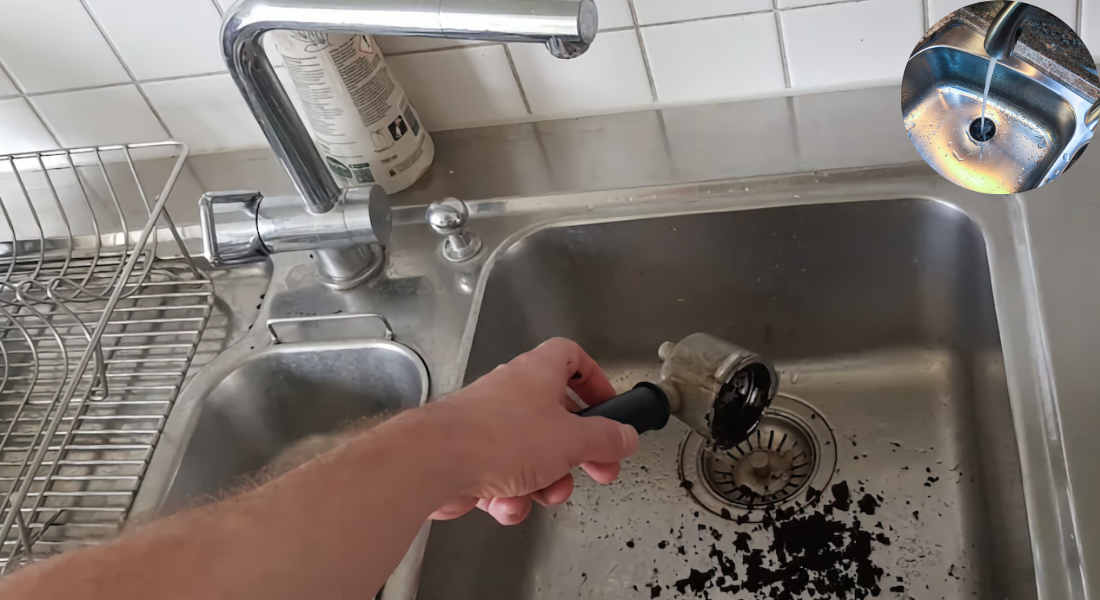
If flushing coffee grounds down the sink is harmful, what are the alternatives? Thankfully, there are many eco-friendly and practical ways to dispose of coffee grounds.
Compost Coffee Grounds
One of the best ways to dispose of coffee grounds is by composting them. Coffee grounds are rich in nitrogen, which makes them an excellent addition to compost piles. When mixed with other organic matter, they break down into nutrient-rich fertilizer that can improve soil health.
You may also read (understanding home plumbing).
Benefits of Composting Coffee Grounds:
- Adds essential nutrients to garden soil
- Reduces waste sent to landfills
- Improves the structure and drainage of the soil
Dispose of Coffee Grounds in the Trash
If composting isn’t an option, throw coffee grounds in the Trash. To avoid odors or mess, place them in a small bag or container before discarding.
Creative Reuse Ideas for Coffee Grounds
Here are some fun and practical ways to reuse coffee grounds:
- Gardening: Sprinkle coffee grounds around plants as a natural fertilizer or pest repellent.
- Deodorizing: Use coffee grounds to neutralize odors in refrigerators, shoes, or garbage bins.
- Cleaning: Coffee grounds can be used as a mild abrasive to clean pots, pans, and surfaces.
What to Do If Coffee Grounds Have Already Clogged Your Pipes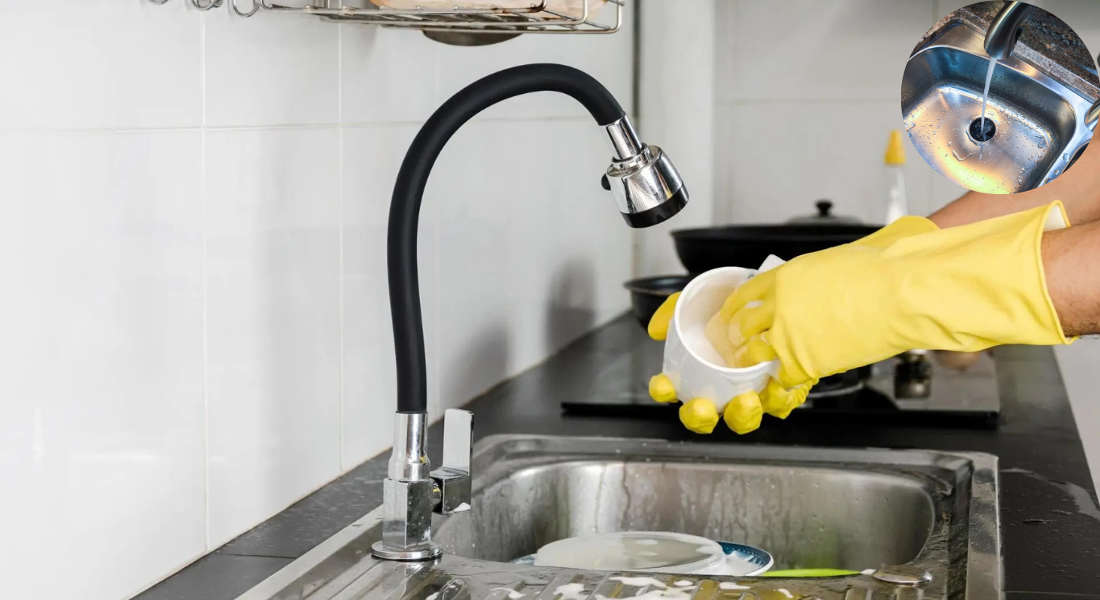
If you suspect that coffee grounds have caused a clog in your plumbing, here’s how to address the issue.
Recognize the Signs of a Clog
Common signs of a coffee ground-related clog include:
- Slow-draining water
- Gurgling sounds from the sink
- Foul odors coming from the drain
Avoid DIY Chemical Drain Cleaners
Chemical drain cleaners seem like a quick fix, but they can damage your pipes over time. These harsh chemicals can corrode the pipe material and may not effectively dissolve coffee ground clogs.
Call a Professional Plumber
For severe clogs, it’s best to call a plumber. Professionals have specialized tools, such as drain augers and hydro-jetting equipment, to safely and effectively remove blockages.
Prevent Future Clogs
To prevent future issues, avoid rinsing coffee grounds, grease, or other clog-causing materials down the sink. Regularly maintain your plumbing system by scheduling professional inspections.
Maintaining Healthy Plumbing Beyond Coffee Grounds
Keeping your plumbing in good condition requires more than just avoiding coffee grounds. Here are some additional tips for maintaining healthy pipes.
Best Practices for Drain Care
- Avoid rinsing grease, oil, or food scraps down the drain.
- Drain strainers are used to catch debris before it enters the pipes.
- Run hot water down the sink after each use to clear minor buildups.
Regular Maintenance Tips
- Schedule annual plumbing inspections.
- Clean garbage disposals monthly using ice cubes and vinegar.
- Use enzyme-based drain cleaners periodically to break down organic buildup.
You may also read (transform your sink easy plumbing fixes at home).

